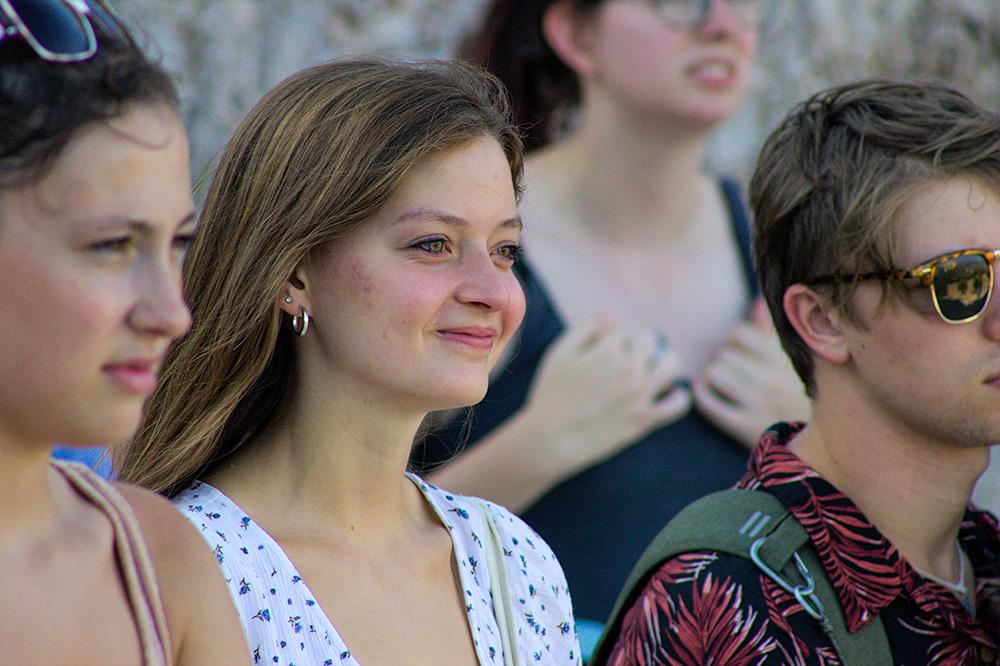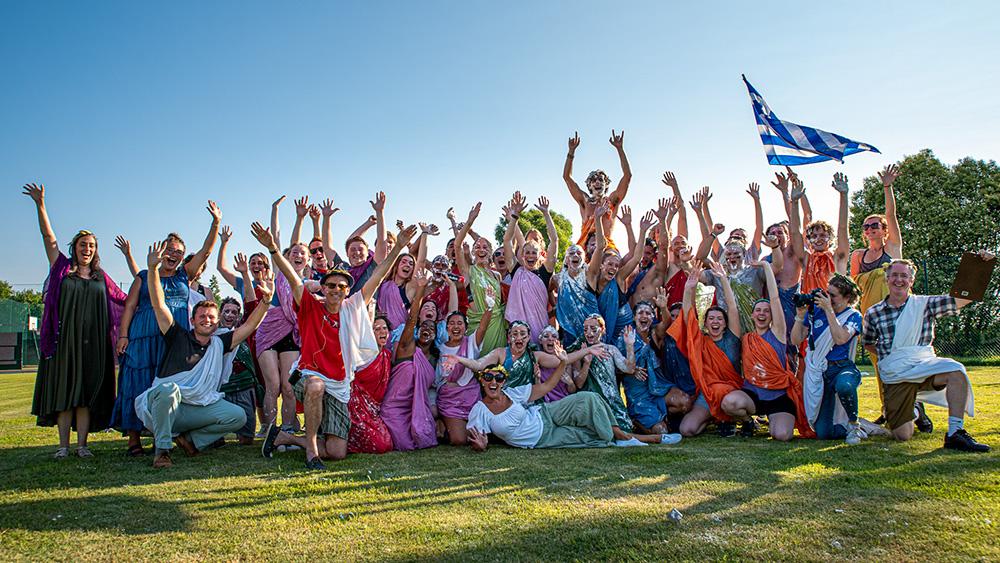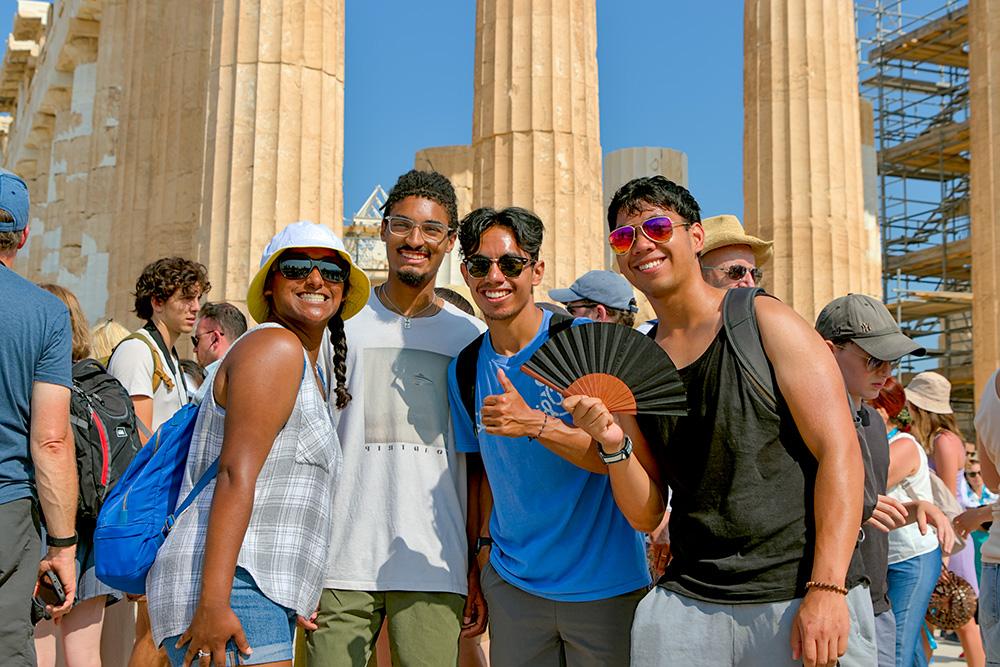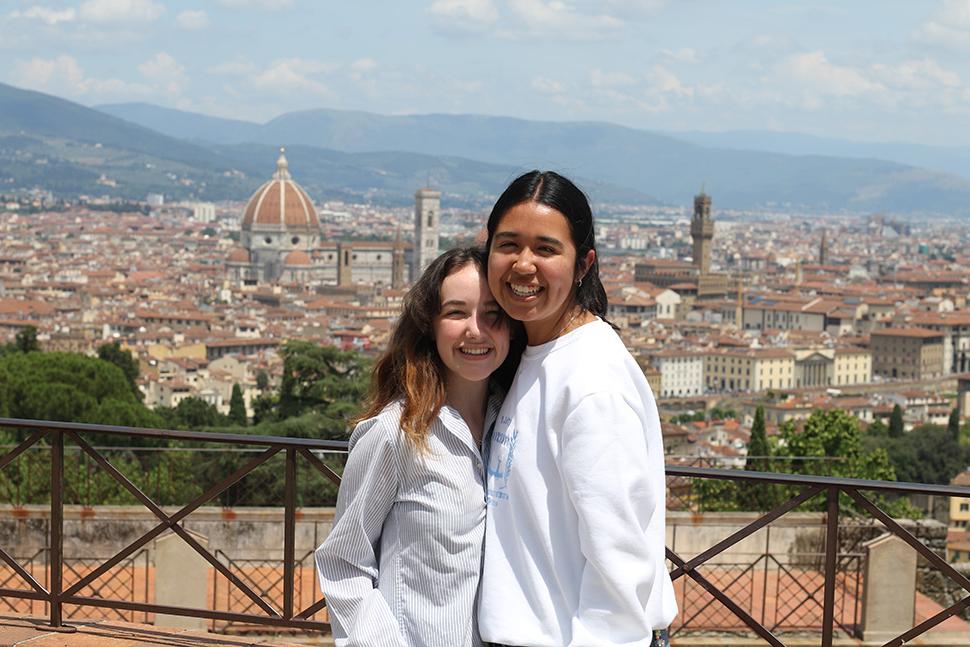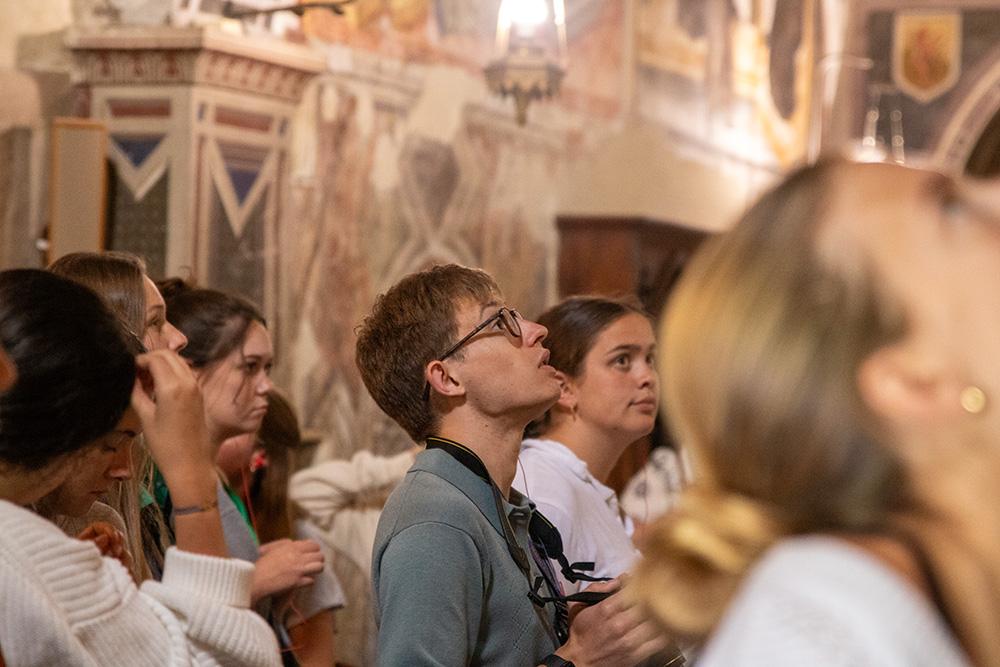Summer in Rome with the University of Dallas
Pursuing Wisdom, Enjoying Beauty, Making Friends
The University of Dallas Summer Rome Program invites thoughtful and eager undergraduate
students from other colleges and universities to study with us at our gorgeous campus
in the hills just outside of Rome and to travel to Florence, Venice, and Greece, our
alternative classrooms. Whether you join us for the first half, the second half, or
the whole summer, the great books and works of the Western tradition lead to an even
richer understanding of human potential for excellence when studied in the very places
that inspired them.
Course Descriptions
History 2301: Western Civilization I , Dr. Susan Hanssen
The Western Civilization sequence offers the historical framework necessary to the
integration of the elements which make up a liberal education. Beginning with the
cultures of the ancient Near East, this course proceeds chronologically through the
Greco-Roman, medieval, Renaissance and Reformation periods, acquainting the student
with major political, social, and intellectual movements. Texts studied include Thucydides'
History of the Peloponnesian War, the first five books of Livy's Ab urbe condita, Boethius' Consolation of Philosophy, Thomas More's Utopia, and Russell Kirk's The Roots of American Order.
Theology 2311: Western Theological Tradition, Dr. Irene Alexander
Reflective reading of classic, post-biblical Christian texts with a view to tracing
the development of theological thought in Western Christianity from its beginnings
to the post-Vatican II era.
English 2311: Literary Tradition III, Fr. Stephen Gregg
The study of dramatic tragedies and comedies with a view to understanding the meaning
of these two alternative yet concurrently enduring vistas upon the human condition.
Readings in the Greek dramatists, the Elizabethans, and modern European and American
playwrights. Discussion of individual plays and continuity and difference within the
tradition, accompanied by the student's composition of interpretive essays. The Oresteia,
Oedipus the King, Oedipus at Colonus, Antigone, The Bacchae, Frogs, Hamlet, Othello,
Macbeth, King Lear, The Tempest, and a selection of modern dramas.
What does it mean to be human? Is there a soul and, if so, what is it? In light of
contemporary reductive materialism and its claims for the sufficiency of scientific
naturalism, this course explores the relationship between nature and soul. In the
classical philosophical understanding, the human person finds himself or herself in
tension between the immanent spheres of nature (or body or history) and the call to
a commitment to a transcendent dimension of reality--a transcendent dimension associated
with psyche, anima, mind, or spirit. The investigation includes an account of the
parts and powers of the soul, such as sense, desire, intellect, and will. Readings
feature texts by Plato, Aristotle, Augustine, Descartes, and Nietzsche.




